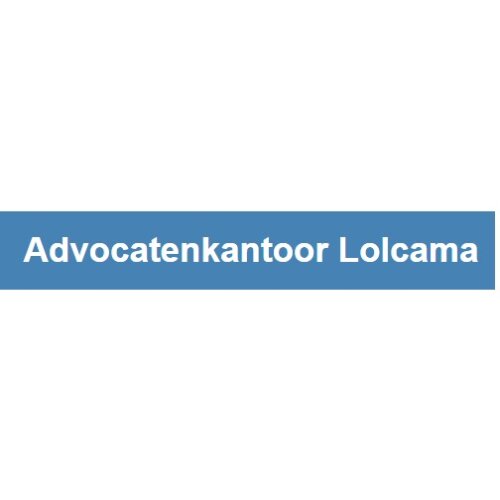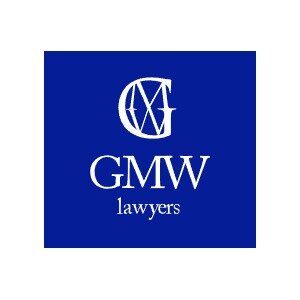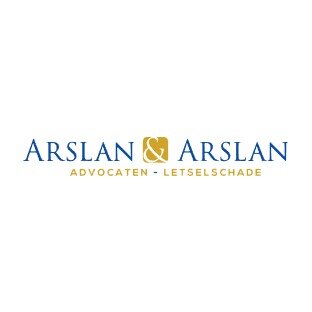Best Funds & Asset Management Lawyers in The Hague
Share your needs with us, get contacted by law firms.
Free. Takes 2 min.
List of the best lawyers in The Hague, Netherlands
About Funds & Asset Management Law in The Hague, Netherlands
Funds and asset management law in The Hague is an integral aspect of the Dutch financial sector and plays a critical role in protecting investors, ensuring transparency, and maintaining market stability. As the seat of the Dutch government and a key international business center, The Hague sees a significant amount of financial services activity. Funds and asset management involves advising on the setup and operation of investment vehicles, portfolio management, and compliance with complex national and EU regulations. These activities are regulated primarily under the Dutch Act on Financial Supervision (Wet op het financieel toezicht or Wft) and are influenced by various European Union directives and regulations. Legal expertise in this field is essential for firms and individuals seeking to navigate the evolving regulatory landscape, structure investment funds, and optimize asset management strategies within the bounds of the law.
Why You May Need a Lawyer
There are several circumstances where seeking legal advice in funds and asset management is highly advisable. You may need a lawyer if you are:
- Establishing a new investment fund and need guidance on regulatory approvals and licensing
- Structuring asset management agreements or reviewing investment terms
- Unsure about your compliance obligations under Dutch or EU law
- Faced with regulatory investigations or potential enforcement actions
- Considering cross-border investments or dealing with international clients
- Engaged in M&A activity involving asset management companies
- Involved in disputes with investors, partners, or service providers
- Seeking to adapt your fund structure to new regulations such as EU SFDR or AIFMD
- Assessing legal risks in marketing funds to Dutch or EU investors
- Looking for advice on tax implications of fund structures
Engaging an experienced funds and asset management lawyer will help you manage legal risks, maintain regulatory compliance, and protect your investments.
Local Laws Overview
The legal framework for funds and asset management in The Hague is primarily based on national and EU law:
- Act on Financial Supervision (Wft): The central statute governing licensing, supervision, and conduct rules for financial institutions, including fund managers and investment firms.
- Alternative Investment Fund Managers Directive (AIFMD): EU legislation regulating the management, marketing, and transparency of alternative investment funds.
- Undertakings for Collective Investment in Transferable Securities (UCITS): Harmonized regime for certain open-ended funds available to retail investors.
- Markets in Financial Instruments Directive (MiFID II): Sets conduct of business rules, transparency, and organizational requirements for investment firms.
- Sustainable Finance Disclosure Regulation (SFDR): Requires disclosure of sustainability practices for asset managers and financial advisers.
- Anti-Money Laundering and Counter-Terrorism Financing: Stringent measures require customer due diligence and reporting of suspicious transactions.
- Corporate and Tax Law: Fund structures must also comply with Dutch corporate and fiscal requirements.
Regulatory supervision is carried out mainly by the Dutch Authority for the Financial Markets (AFM) and the Dutch Central Bank (DNB).
Frequently Asked Questions
What is the difference between UCITS and alternative investment funds?
UCITS funds are highly regulated investment funds aimed at retail investors and can be marketed across the EU. Alternative investment funds (AIFs) cover all other types of funds, such as hedge funds, real estate funds, and private equity funds, and are subject to the AIFMD.
Do I need a license to manage a fund in The Hague?
In most cases, yes. Fund managers must obtain a license from the Dutch Authority for the Financial Markets (AFM) unless they qualify for a specific exemption under the law.
Can foreign fund managers operate in The Hague?
Yes, foreign fund managers can operate in The Hague, but they must comply with Dutch and applicable EU regulations. Passporting rights may be available within the EEA for licensed managers.
What are the main legal documents required to set up a fund?
Key documents typically include the fund's articles of association, prospectus, management agreement, depositary agreement, and relevant disclosures to comply with Wft and EU requirements.
How are funds taxed in the Netherlands?
The tax treatment depends on the fund’s legal structure. Some investment funds benefit from favorable tax regimes, such as the Fiscal Investment Institution (FBI) regime, while others are treated as tax-transparent.
What are the ongoing compliance requirements for fund managers?
Fund managers must comply with reporting, disclosure, anti-money laundering, and risk management obligations under both the Wft and EU regulations like AIFMD and SFDR.
What investor protection mechanisms exist?
Dutch and EU laws ensure investor protection through rules on risk disclosure, segregation of assets, depositary oversight, and compensation schemes in the event of misuse of funds.
Is it necessary to appoint a local depositary or custodian?
Most funds must appoint a licensed depositary or custodian in the Netherlands to safeguard assets and supervise key aspects of fund operation, as required by law.
What should I know about marketing funds to Dutch investors?
Marketing to Dutch investors is strictly regulated. Fund managers must ensure compliance with local marketing rules, notification requirements, and proper disclosure of risks and costs.
How can I resolve disputes related to funds and asset management?
Disputes may be resolved through negotiation, mediation, arbitration, or litigation before Dutch courts. Many contracts will specify a preferred method of dispute resolution.
Additional Resources
If you are looking for more information or need specialized help, the following organizations and resources in The Hague and the Netherlands are valuable:
- Dutch Authority for the Financial Markets (AFM) - Financial market supervision and regulation
- Dutch Central Bank (DNB) - Prudential supervision of financial institutions
- Dutch Ministry of Finance - Legislation and policy on financial markets
- Nederlandse Vereniging van Participatiemaatschappijen (NVP) - Dutch association for private equity and venture capital
- Netherlands Investment Funds Association (NIFA) - Industry body for Dutch investment funds
- Local law firms specialized in funds and asset management
- Financial Markets Handbook and publications from AFM and DNB
Next Steps
If you need legal assistance with funds and asset management in The Hague, consider taking the following actions:
- Gather all relevant information and documents related to your fund or investment activities
- Identify your specific concerns or questions to discuss with a lawyer
- Contact a reputable law firm or legal advisor with expertise in Dutch and EU funds law
- Prepare to discuss your objectives, the regulatory context, and potential risks
- Follow your lawyer’s advice on complying with all registration, licensing, and reporting requirements
- Stay updated on legal developments affecting funds and asset management in the Netherlands
Taking prompt and informed action will help you navigate the regulatory environment and safeguard your investment interests in The Hague.
Lawzana helps you find the best lawyers and law firms in The Hague through a curated and pre-screened list of qualified legal professionals. Our platform offers rankings and detailed profiles of attorneys and law firms, allowing you to compare based on practice areas, including Funds & Asset Management, experience, and client feedback.
Each profile includes a description of the firm's areas of practice, client reviews, team members and partners, year of establishment, spoken languages, office locations, contact information, social media presence, and any published articles or resources. Most firms on our platform speak English and are experienced in both local and international legal matters.
Get a quote from top-rated law firms in The Hague, Netherlands — quickly, securely, and without unnecessary hassle.
Disclaimer:
The information provided on this page is for general informational purposes only and does not constitute legal advice. While we strive to ensure the accuracy and relevance of the content, legal information may change over time, and interpretations of the law can vary. You should always consult with a qualified legal professional for advice specific to your situation.
We disclaim all liability for actions taken or not taken based on the content of this page. If you believe any information is incorrect or outdated, please contact us, and we will review and update it where appropriate.










